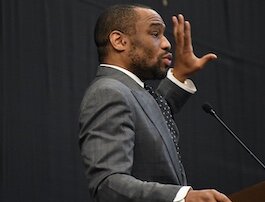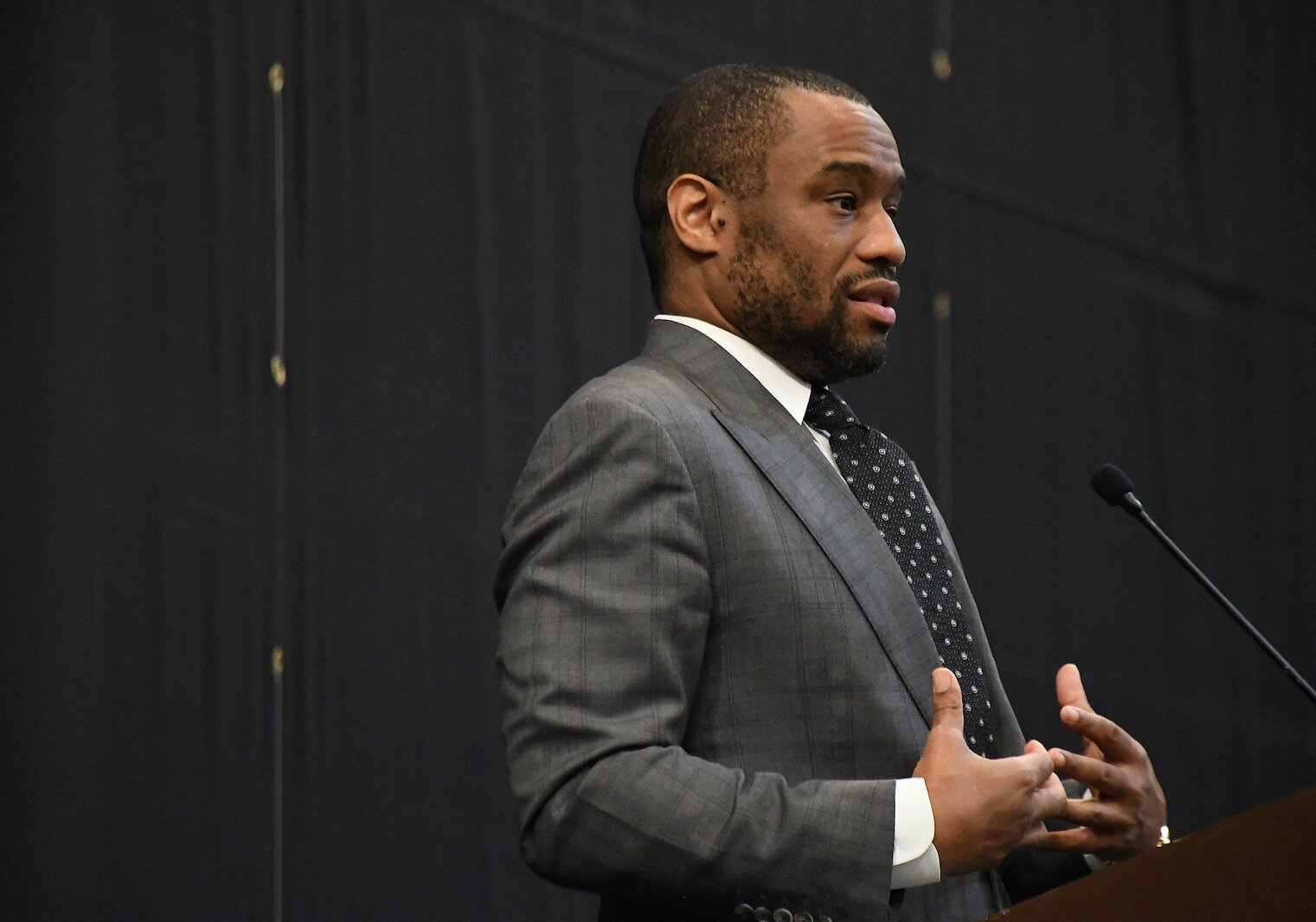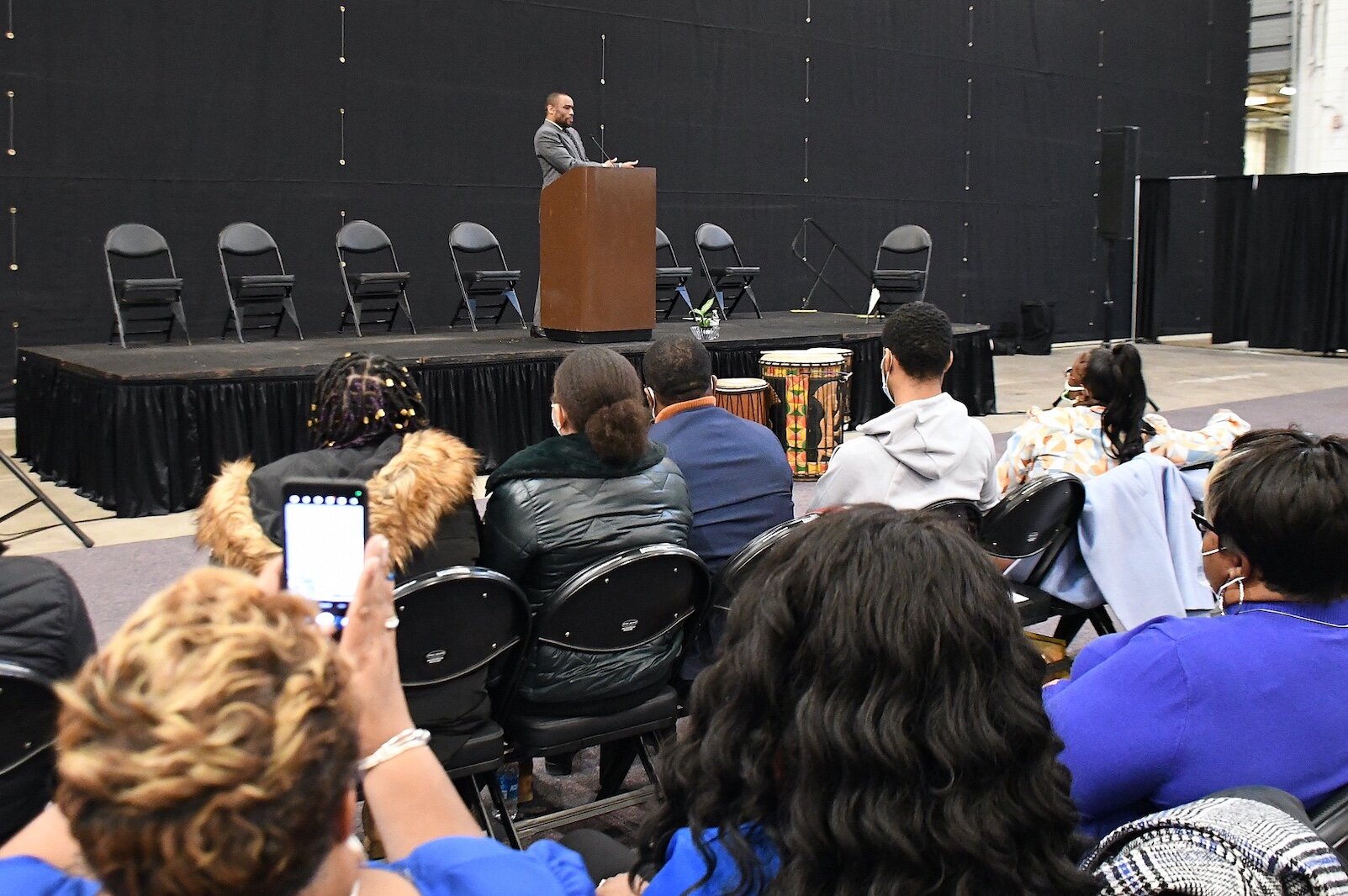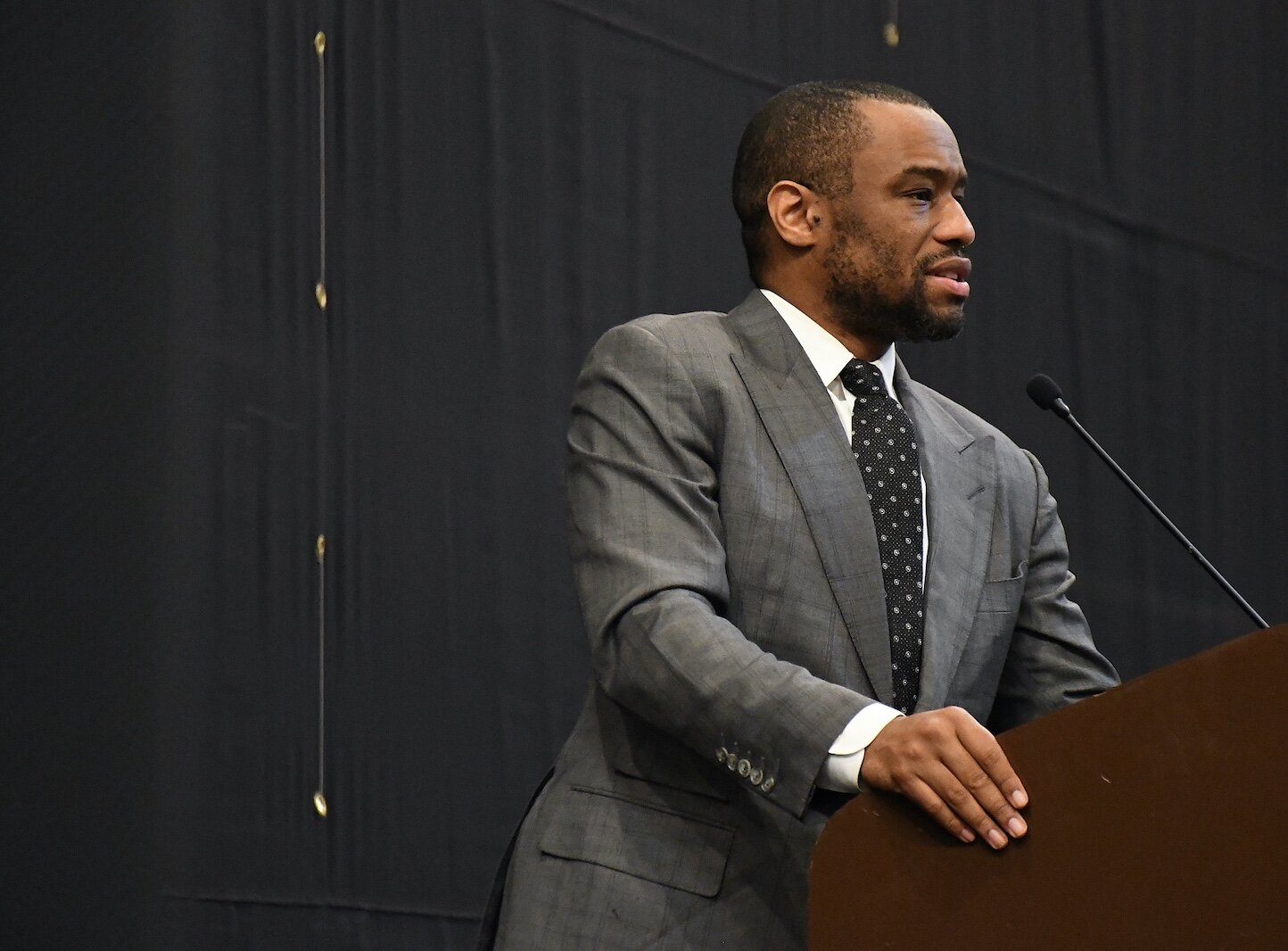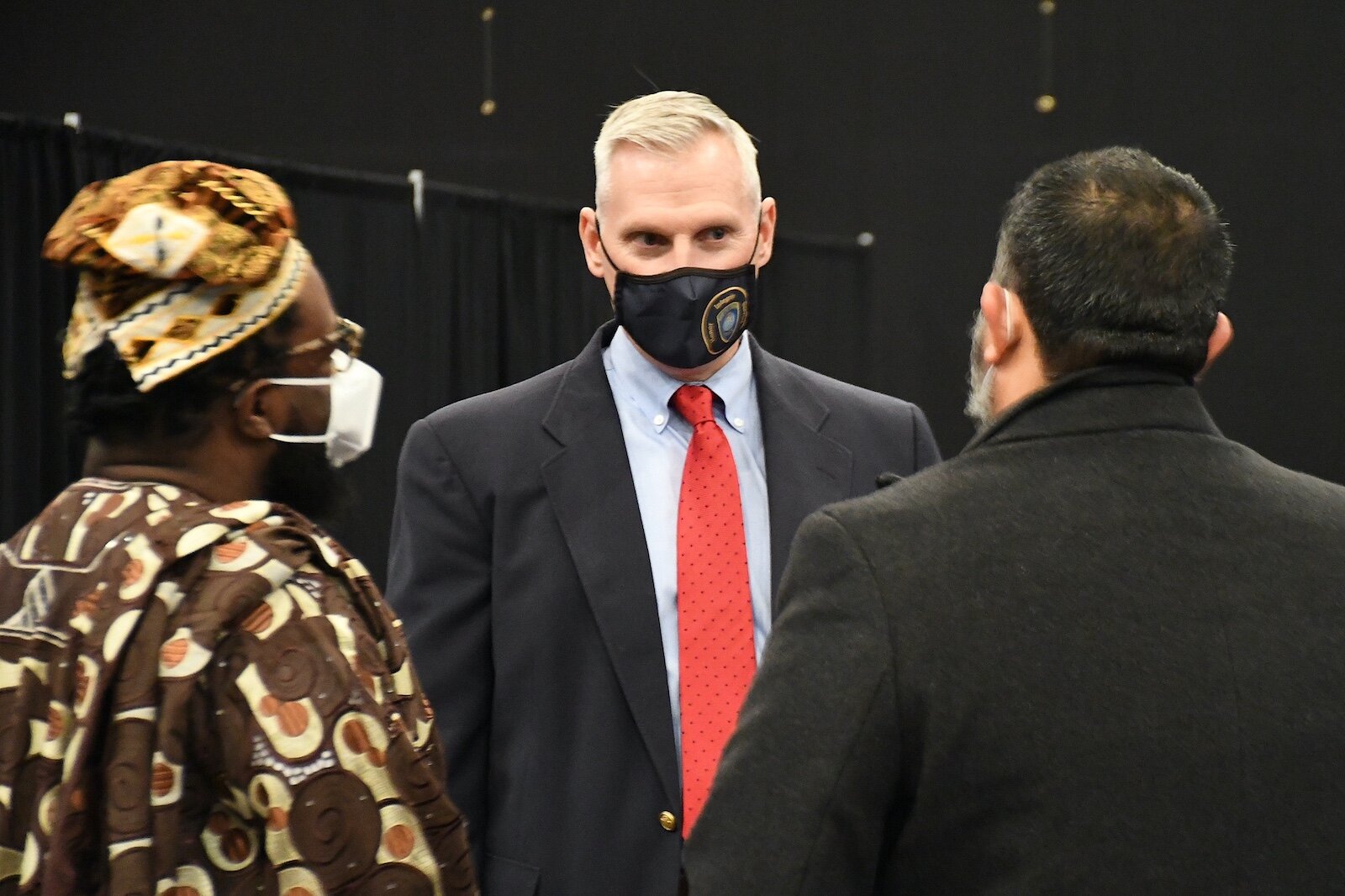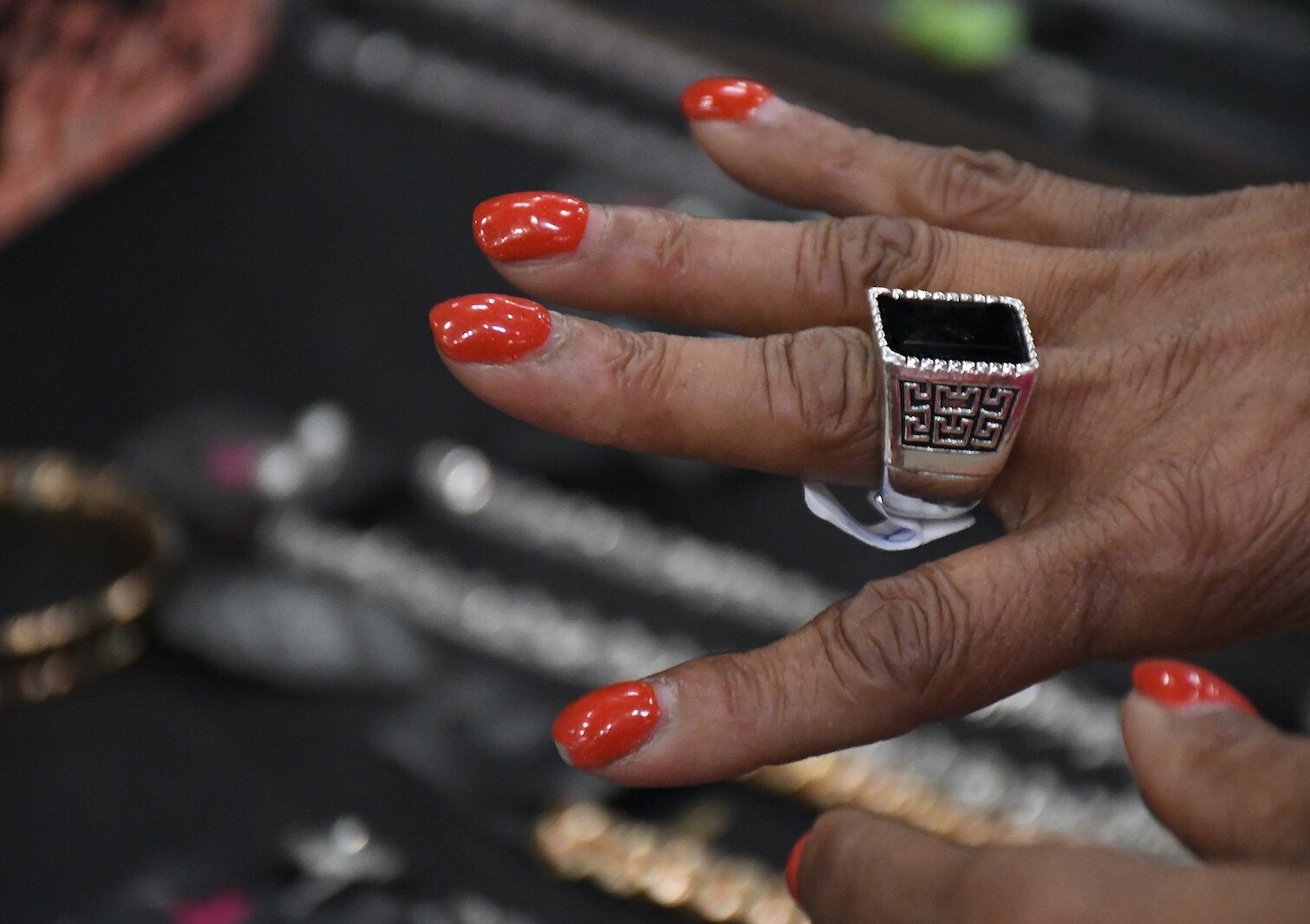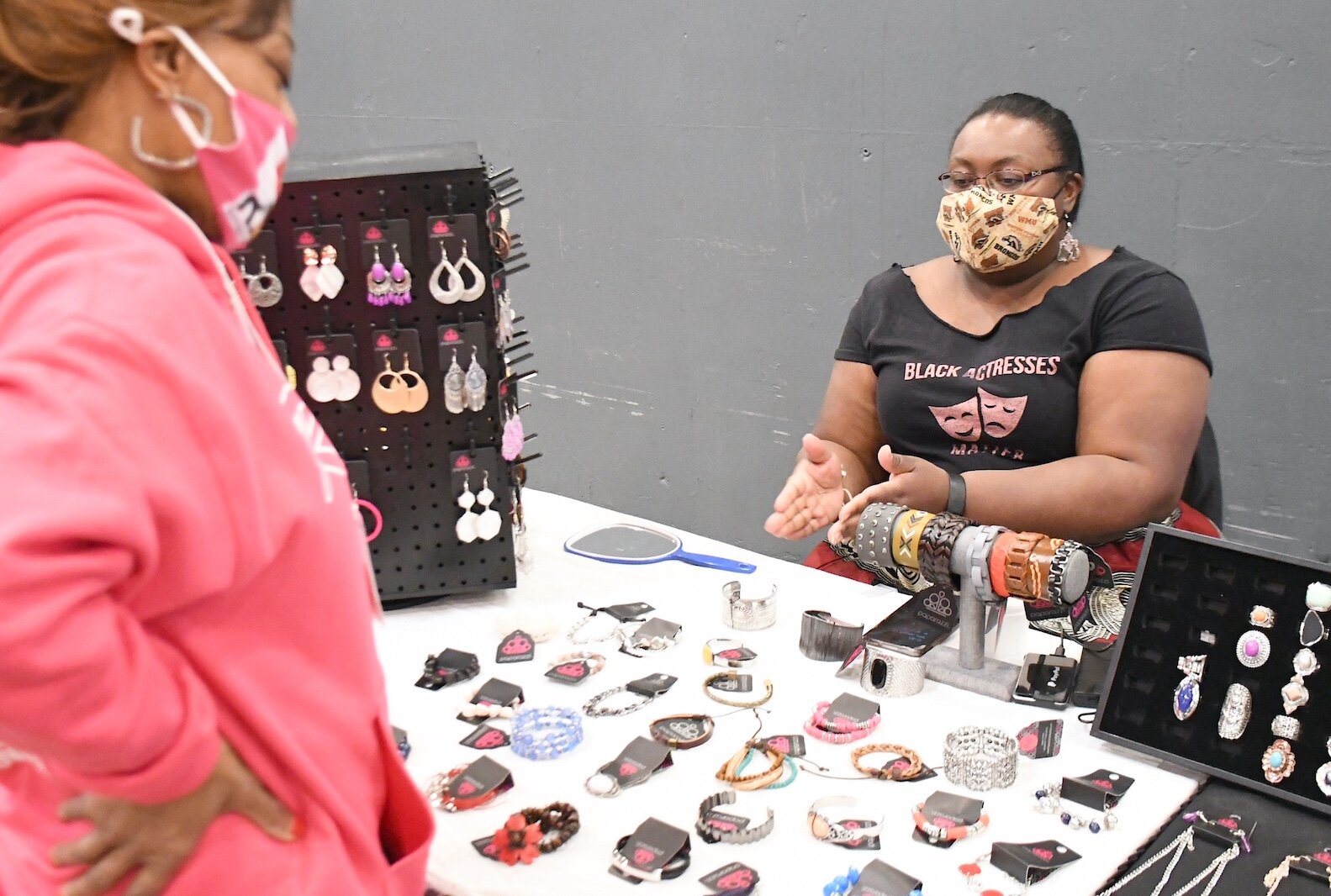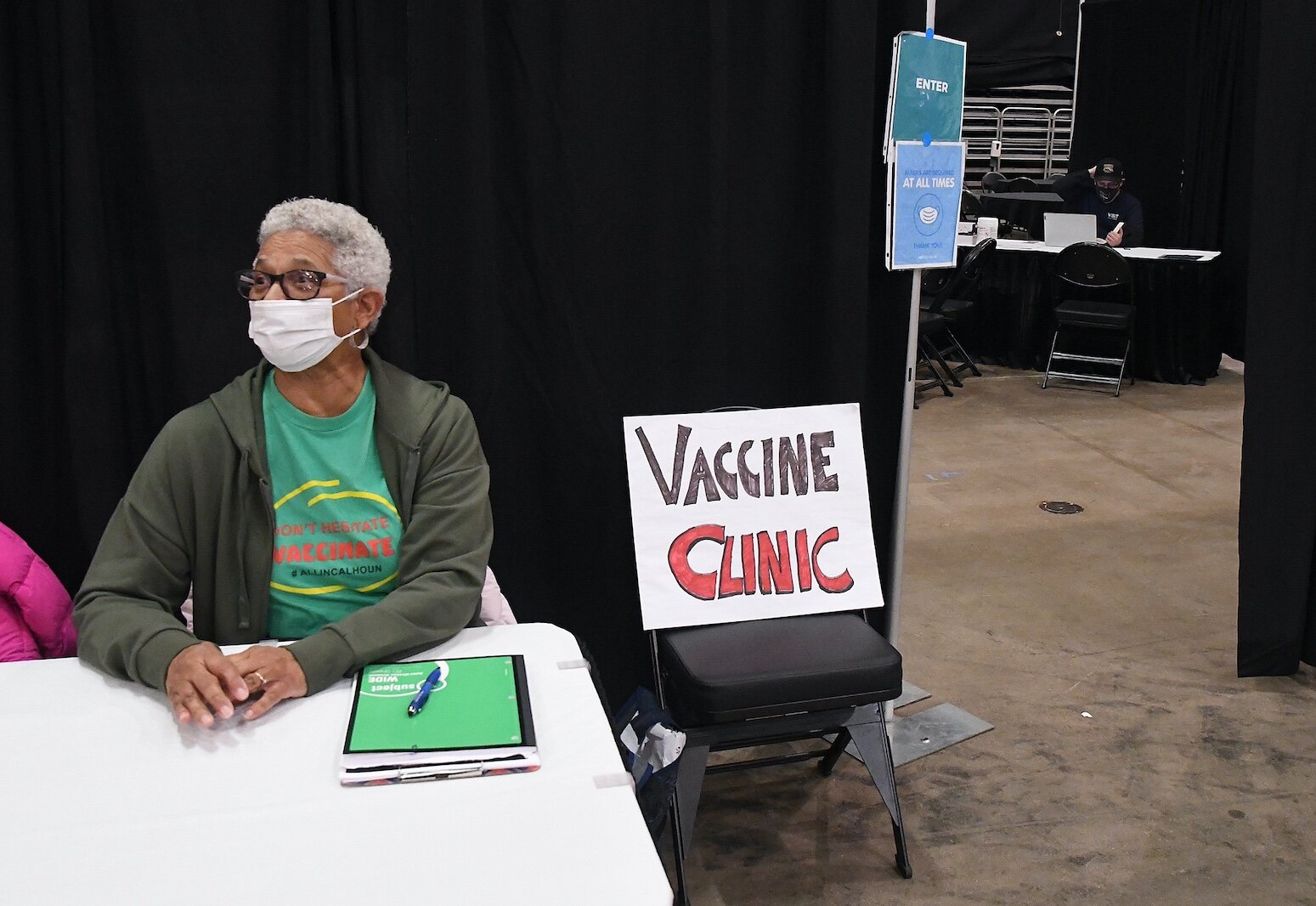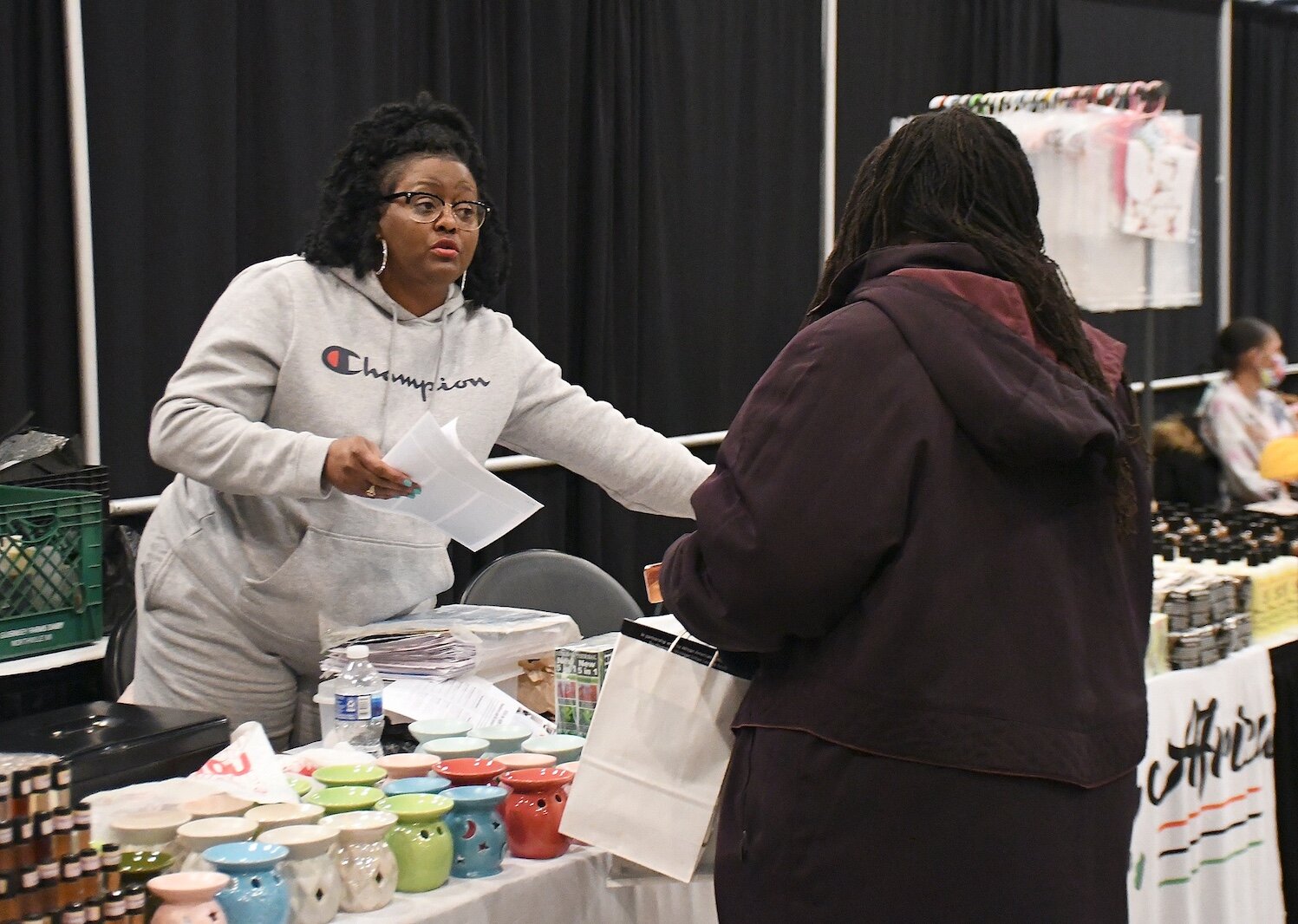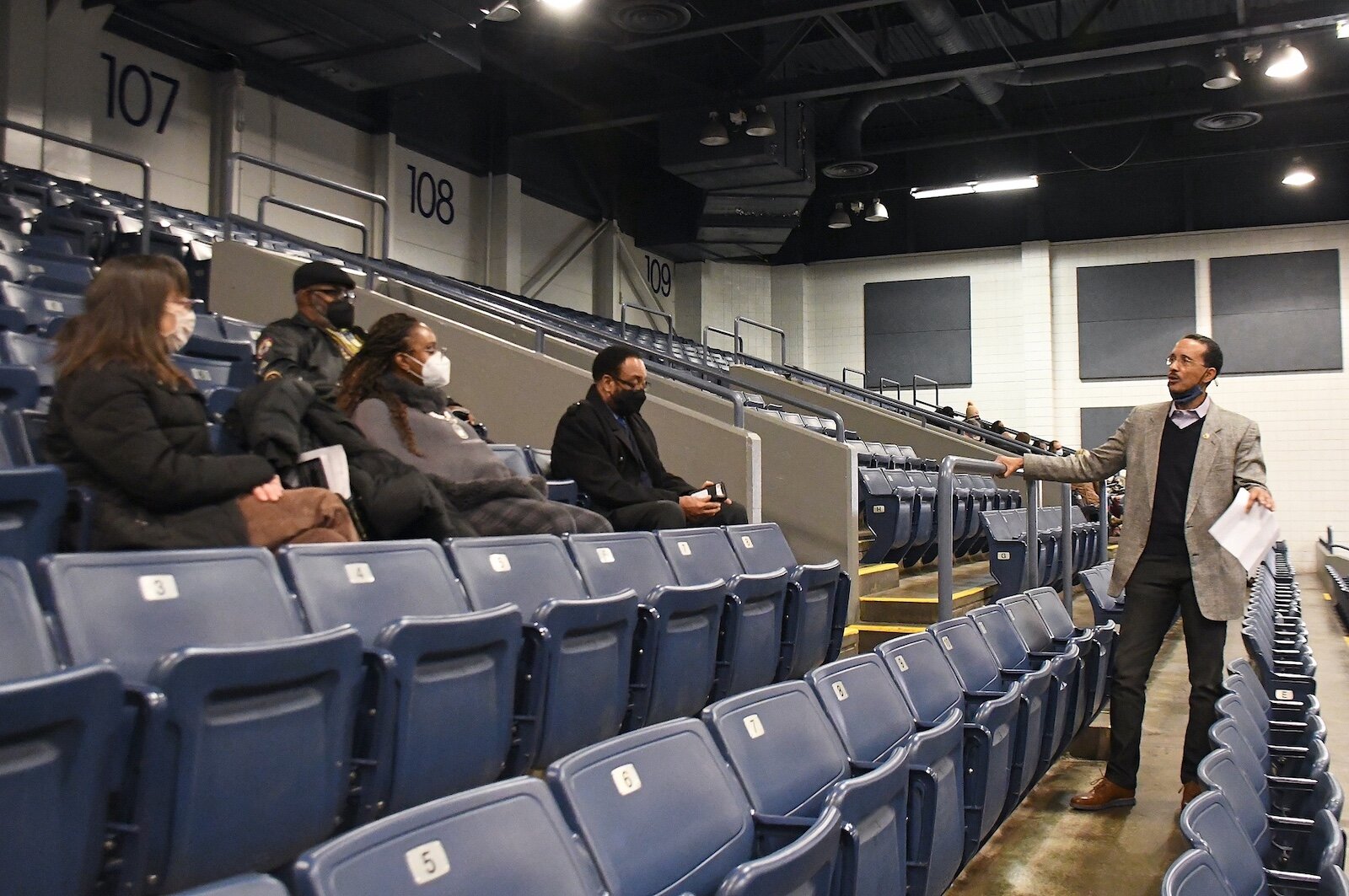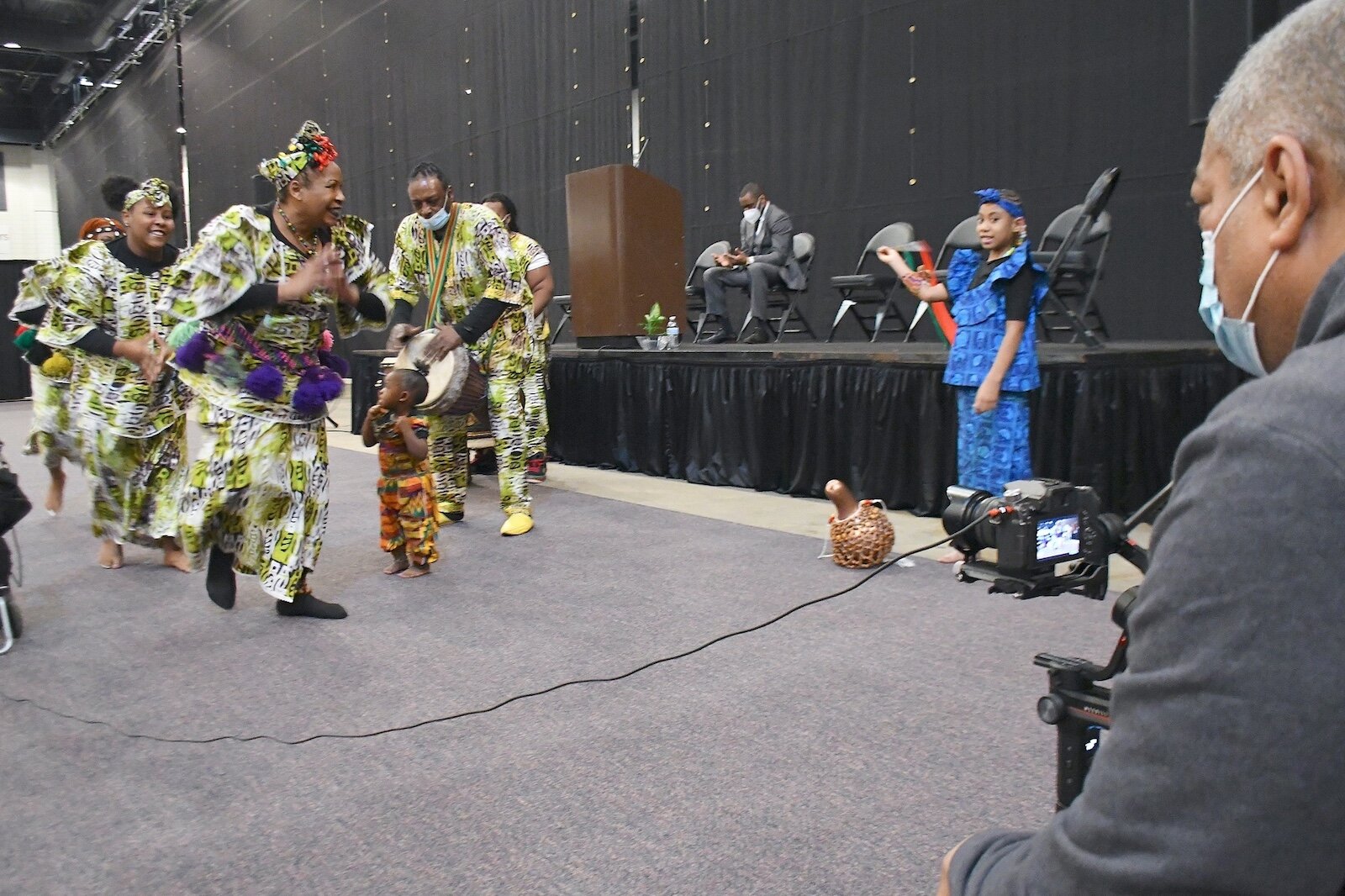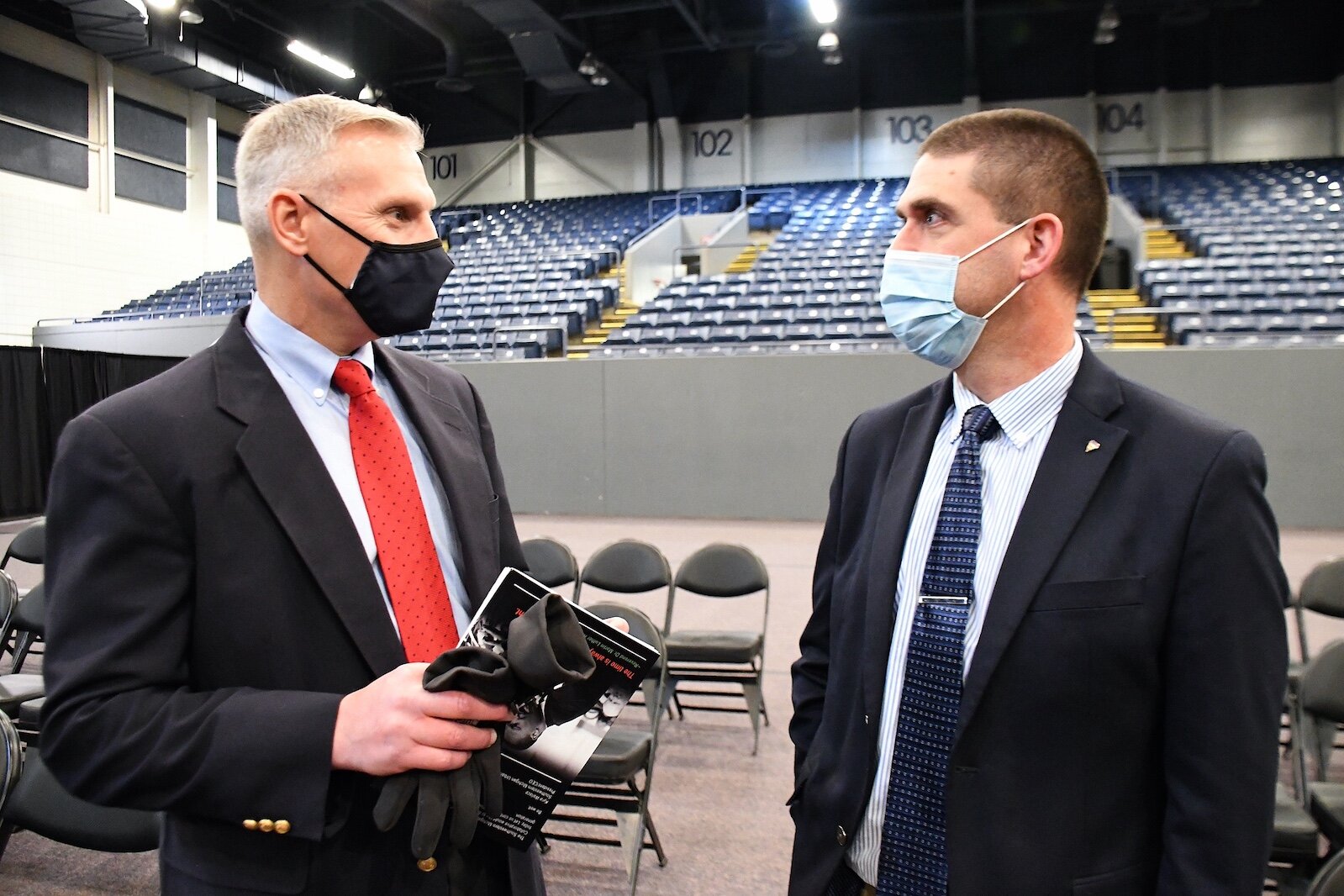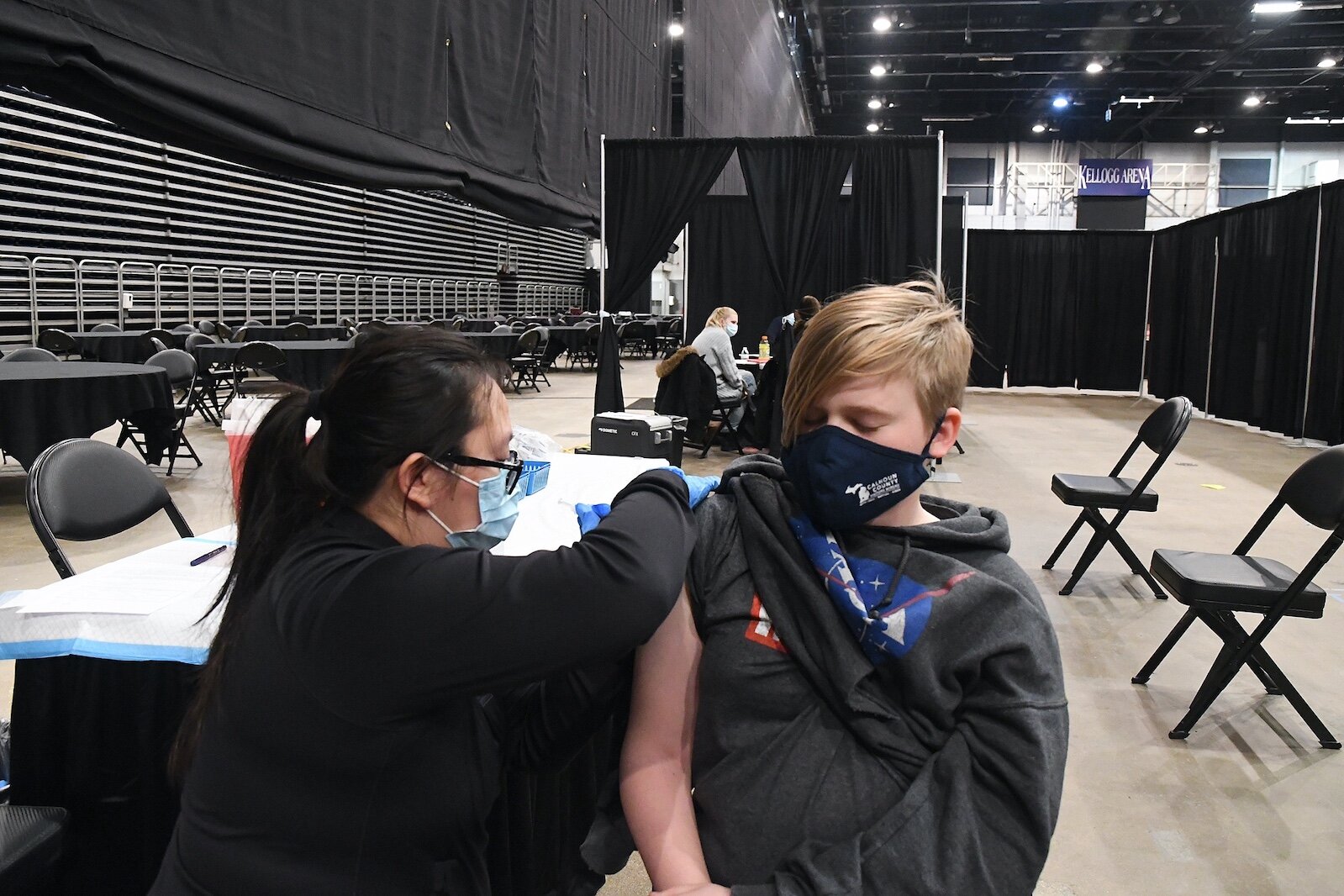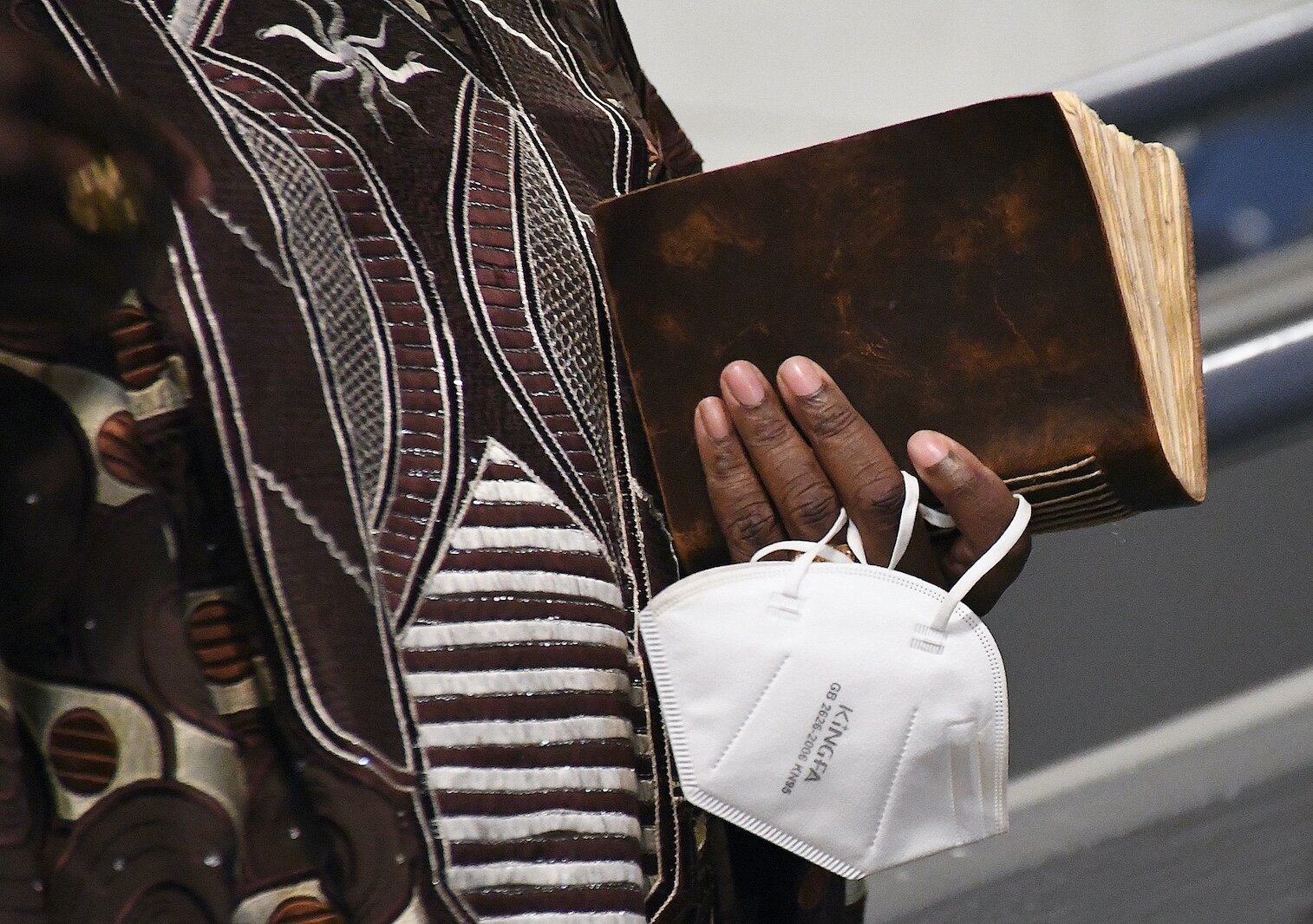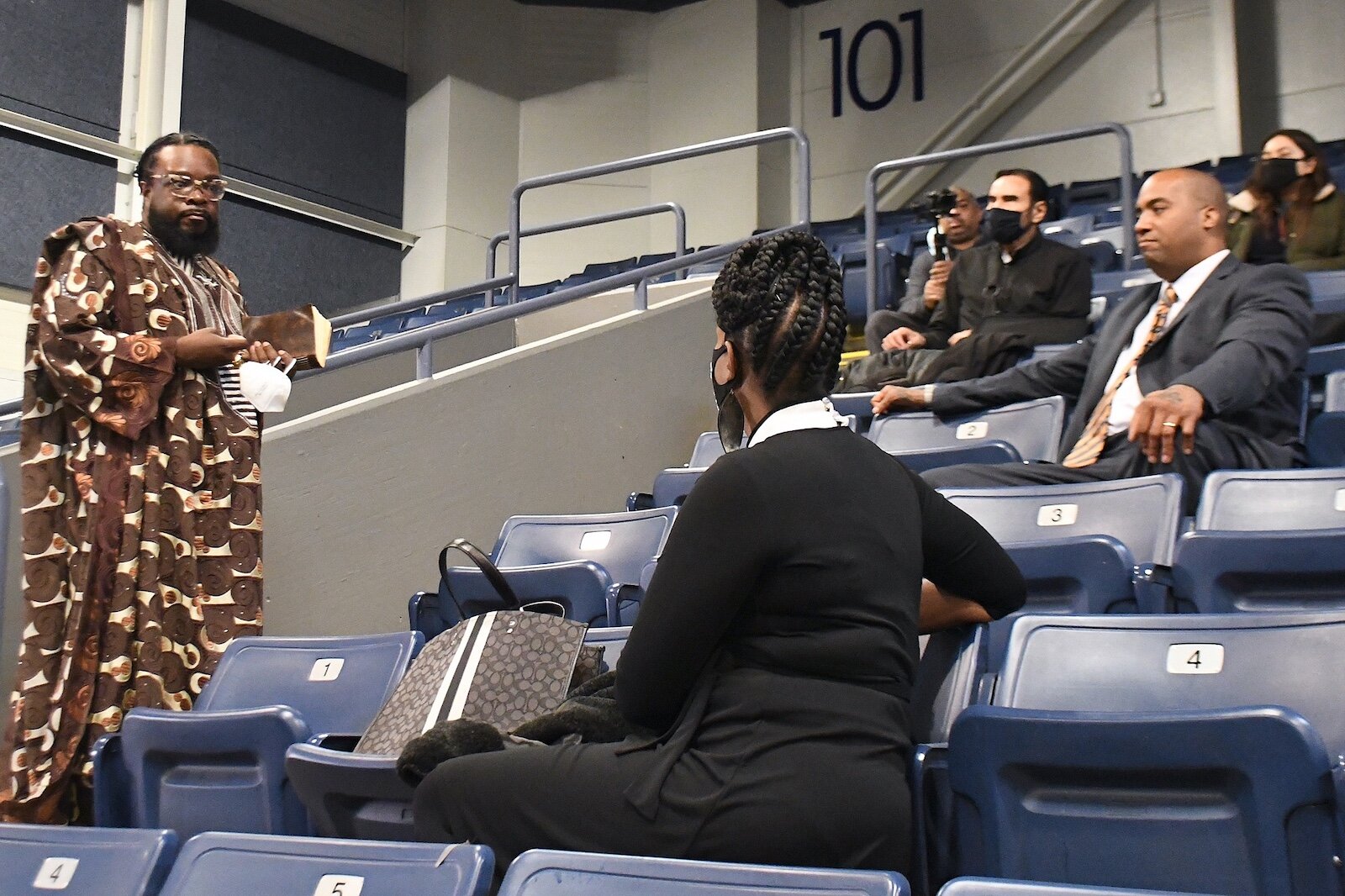“We live in a country that assigns different values to different people’s lives.” — Marc Lamont Hill, the keynote speaker
Editor’s note: This story is part of Southwest Michigan Second Wave’s On the Ground Battle Creek series.
Listening to understand and mobilize is not as easy as it sounds. If it was, the world that Black people find themselves in would look a lot different, says Marc Lamont Hill, the keynote speaker at Monday’s daylong celebration of the life and legacy of Dr. Martin Luther King Jr. at Kellogg Arena.
The celebration titled “MLK Celebration 2022, We, Us, Our: 55 Shades of Black” was hosted by the Southwestern Michigan Urban League, African American Collaborative, and Truth, Racial Healing and Transformation Coalition. In addition to Hill’s talk, the celebration included breakout sessions, a Black Expo featuring local merchants and entrepreneurs, a vaccination clinic, and drumming and dance performances by Flint-based Kuungana Drum and Dance Company and the Nottawaseppi Huron Band of Potawatomi, among others.
Hill, host of BET News and the Coffee & Books podcast, says this year’s MLK Day gives people the “extraordinary opportunity to commemorate two things at the same time”: the 55th anniversary of the Southwestern Michigan Urban League and the “enduring legacy of the great Martin Luther King Jr. who was taken from us 54 years ago, far, far too soon.”
He encouraged audience members to think about how they could build on King’s legacy and on the work of the SMUL.
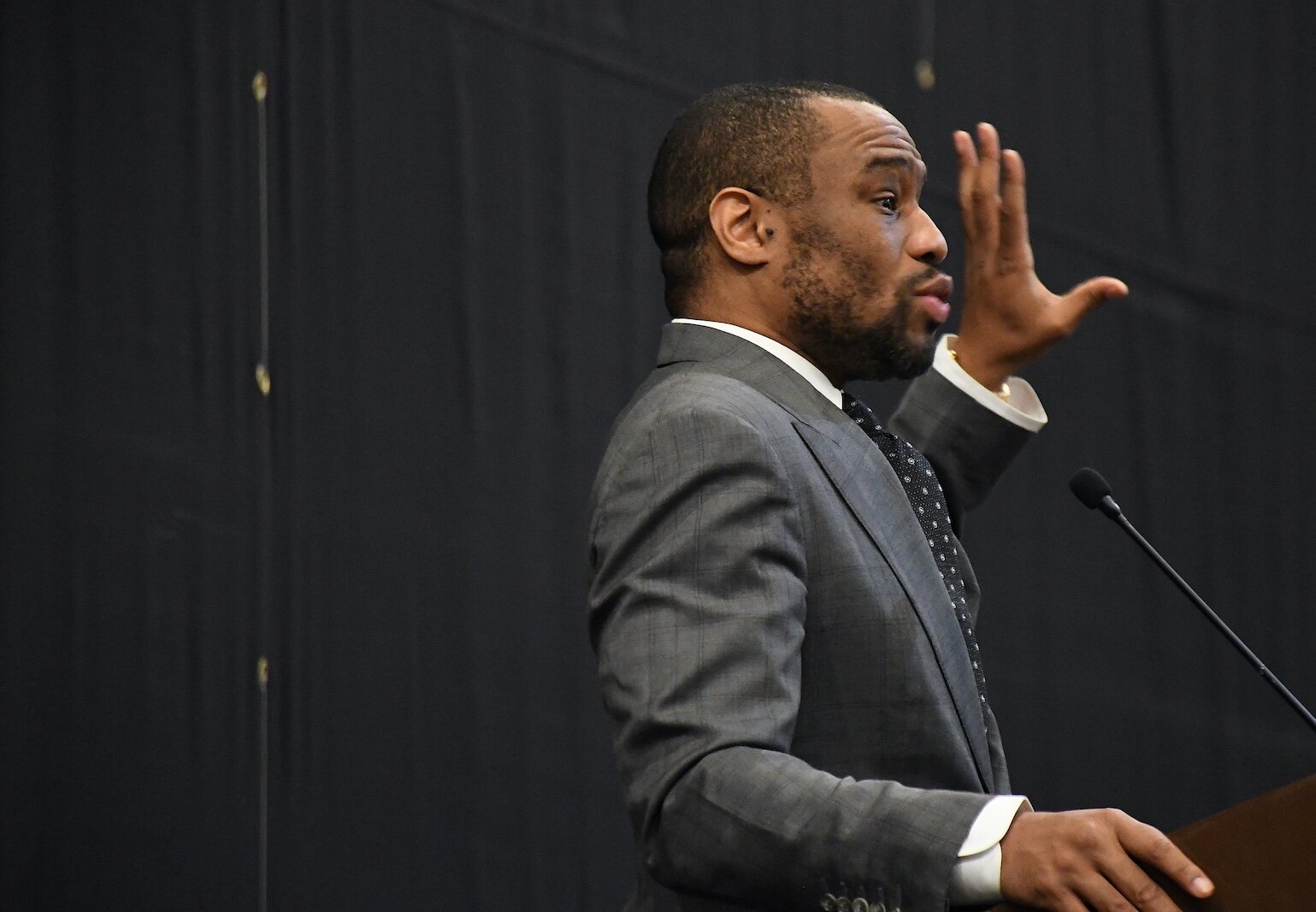
As he was driving from Chicago to Battle Creek on Sunday with Kyra Wallace, President and CEO of the SMUL, Hill says he could see what gentrification has done to the city of Chicago.
“Then we hit the highway and I saw Benton Harbor where there’s lead in the water and if you turn one way you go to Flint where there’s been even more lead in the water and then you drive through Detroit where our schools are being systematically dismantled just like Chicago where teachers are being forced to work with a COVID reality,” Hill says.
Against the backdrop of all of this, Hill asks “What does Dr. King’s legacy have to teach us in the next 55 years? His legacy teaches us to engage in deep listening.”
King listened to all people, not just people who look liked him or agreed with him or shared his experiences, Hill says.
“There are many, many ways of understanding race, class and gender, but you’ve got to dig deep to understand,” says Hill. He cites the working poor who don’t have the time or the financial resources to join organizations like the Urban League or the NAACP (National Association for the Advancement of Colored People), but would still like to be involved.
“We must organize for them and with them to create an infrastructure so they can be there,” Hill says.
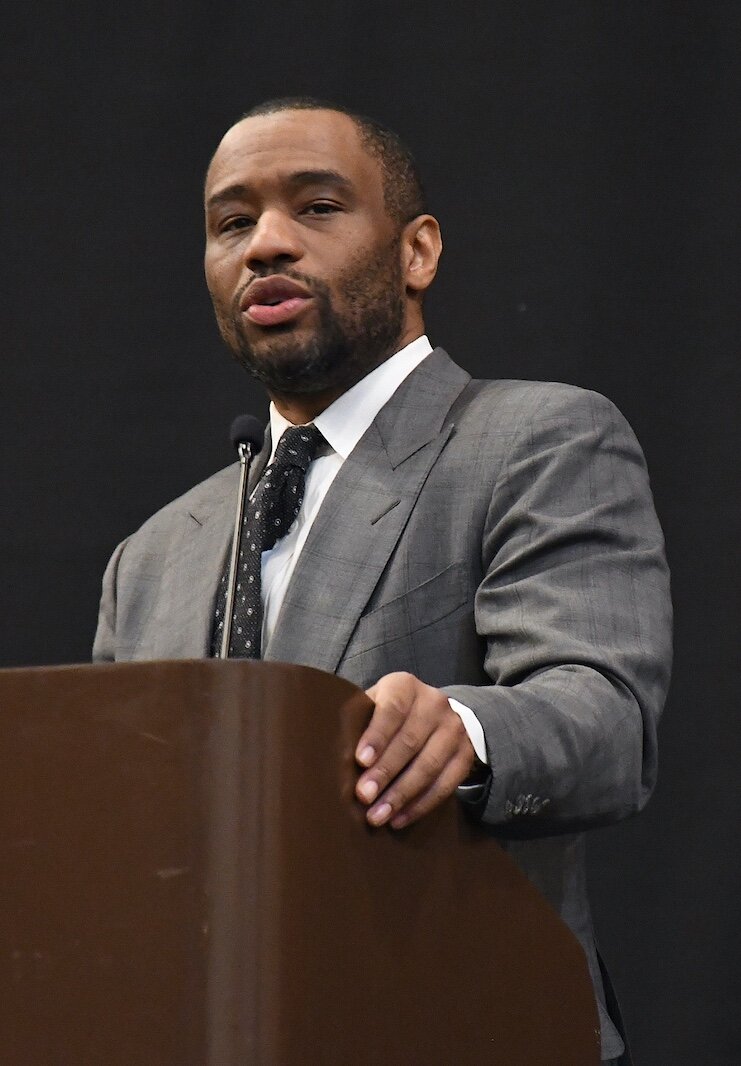
The same is true, he says, of events like parent-teacher associations. He says many people don’t have jobs that give them the flexibility to attend PTA meetings at the times they are scheduled to take place. The solution, he says, is to schedule them around parents work hours.
“We must listen to their voices. Too often we try to organize poor people and we don’t ask what their needs are, or what their interests are, or what will make them whole,” Hill says.
Making the connections
Hill earned a Ph.D. from the University of Pennsylvania and is the Steve Charles Professor of Media, Cities, and Solutions at Temple University. Prior to that, he held positions at Columbia University and Morehouse College.
As he looked out at the audience of more than 100 people gathered to hear him speak, Hill called it an “amazing accomplishment” to have Blacks and Whites in the same room interacting and talking with each other. But, the reality he says, is that Black people are still working harder for less money – 70 cents to every dollar earned by a white person. And Black children, though they may come from households with the same annual incomes as white children, still experience different and less equitable outcomes in school and in the criminal justice system.
He said the work to must continue to repair the damage done between the “have gots” and the “have nots.”
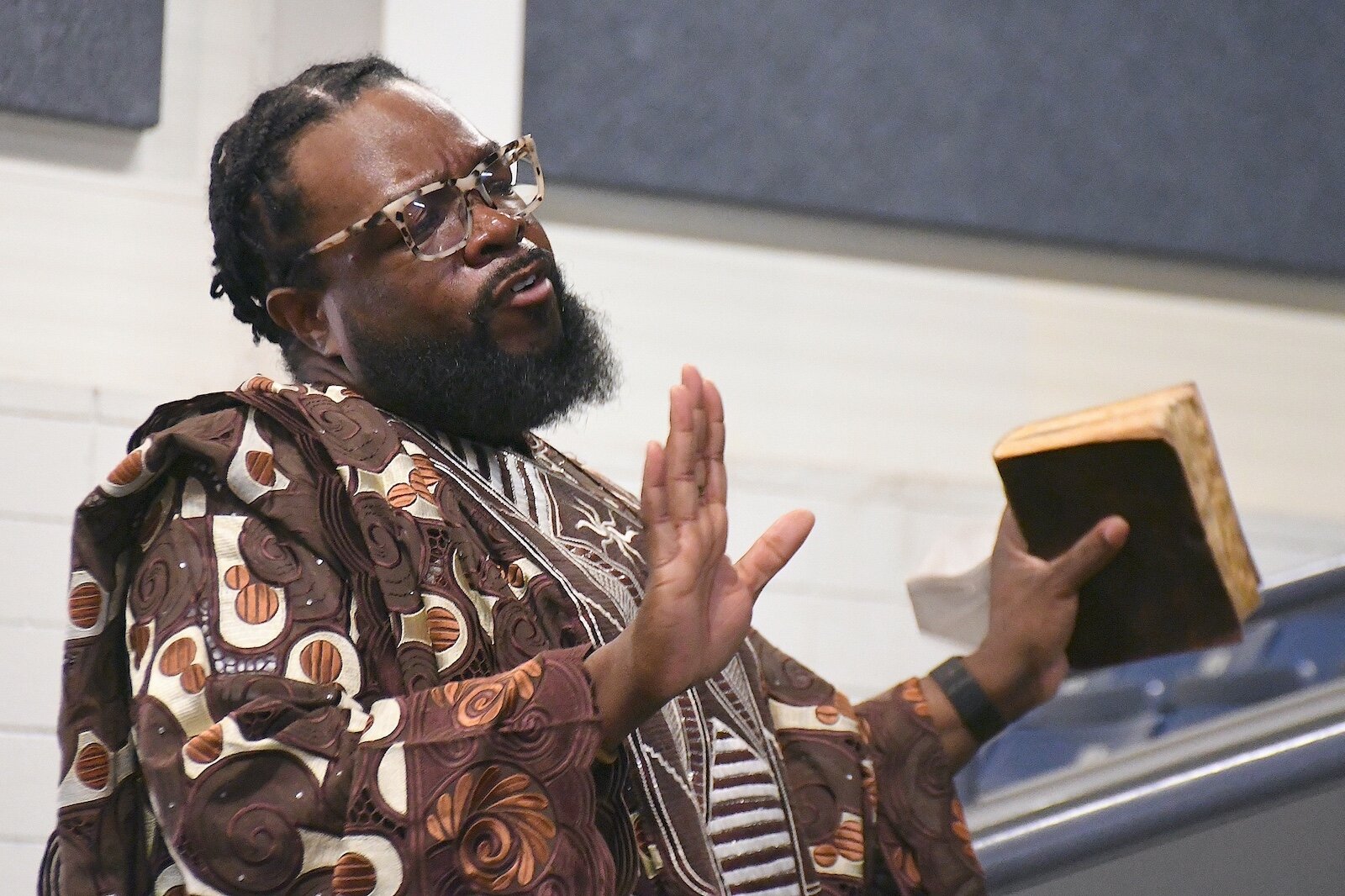
Part of this will involve making the connections.
“You can’t say you’re fighting poverty and war and not understand that relationship,” Hill says. “As long as capital is made and accumulated and multinational corporations are more powerful than government, you’re going to have war and you’re going to send poor people, mostly those who are Black and Brown to fight. If you’re seriously listening, you need to engage in those types of analytics. Don’t tell me you think about the environment and not racism. Why do you think there’s lead in the water in Benton Harbor and Flint, but there’s no lead in the water in Grosse Pointe? Grosse Pointe water lead is reserved for Detroit. We live in a country that assigns different values to different people’s lives.”
He says this is the case with prisons that allow people to engage in activity and behavior that leads to recidivism. This is made worse with the absence of access to educational activities while in prison.
“We need to listen to each other so we can hear the connections,” Hill says. But, it goes beyond listening to accepting differences of opinion and building a foundation to create change together, he says.
Hill, an award-winning journalist and commentator, says when he would appear on FOX television news shows with former FOX personality Bill O-Reilly or current on-air personality Sean Hannity, their talking points, statistics and jokes would all be the same. He says this is because they were organized and would meet once a week and discuss strategy so that everybody would be on message.
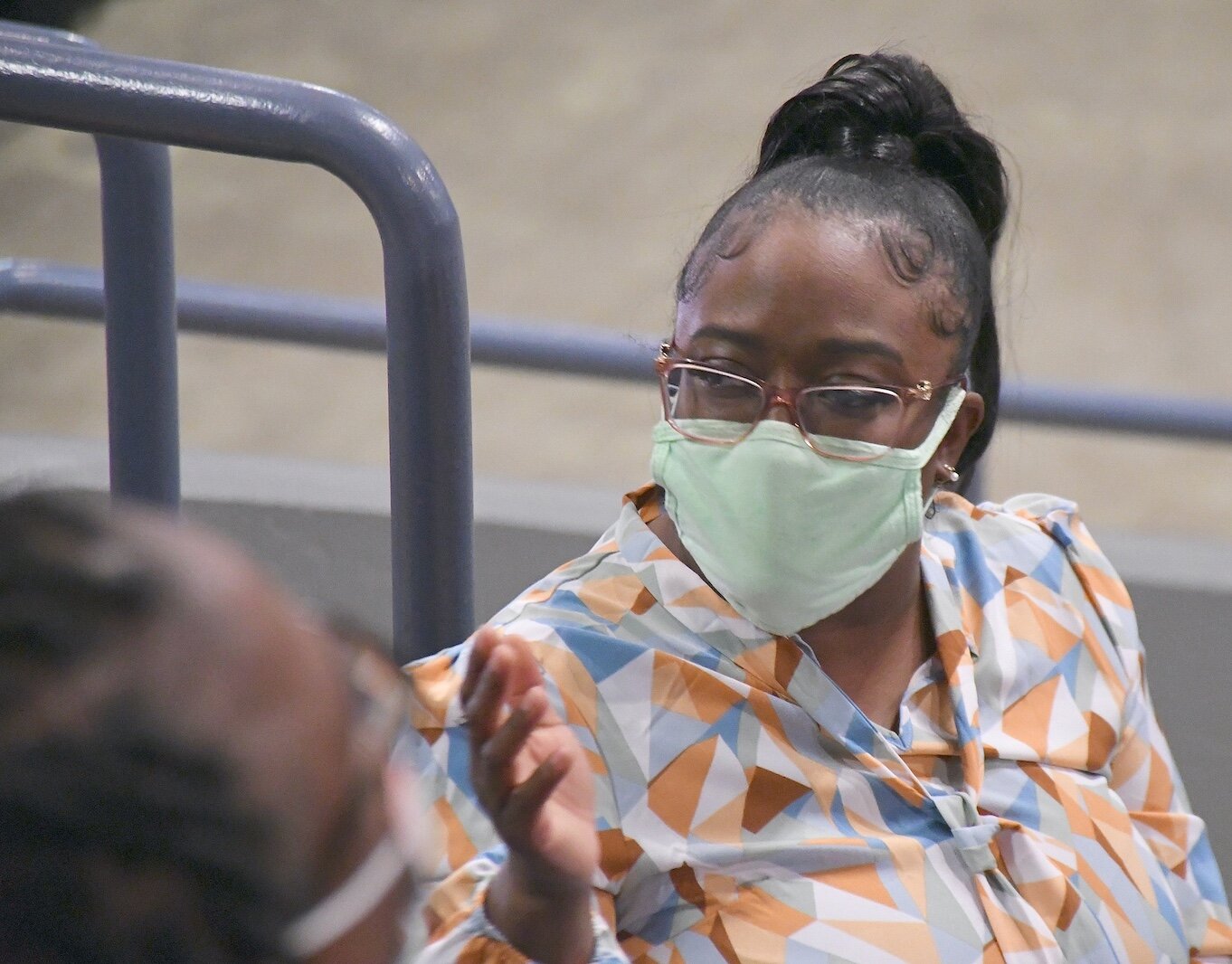
“If you hear that enough it makes sense,” Hill says. “The people in that room didn’t necessarily agree with each other. They all had different positions and some laughed at the others.”
Despite their differences, they came together.
“If people see the world so vastly differently and come together, why can’t we,” Hill asks. “Sometimes we will be so together on 99 percent but we will have one percent disagree on it and that tears us apart. Our open enemies win when that happens. It doesn’t matter if you’ve got 55 years, if you spend the next 55 years separate, it doesn’t matter if you recognize you’ve got 55 years of Black. We must come together, listen to each other and organize, but we must also force America to listen to ourselves.”
When King organized his March on Washington in 1963 for jobs and freedom for Black people, it was 100 years after Emancipation and Hill says Black people were still looking for those jobs and that freedom. That march highlighted that “we were free to be unequal with schooling and jobs,” Hill says.
King made his point while standing in front of the Lincoln Memorial because he wanted people to know that President Lincoln’s Emancipation Proclamation didn’t do what it was intended to do for Black people.
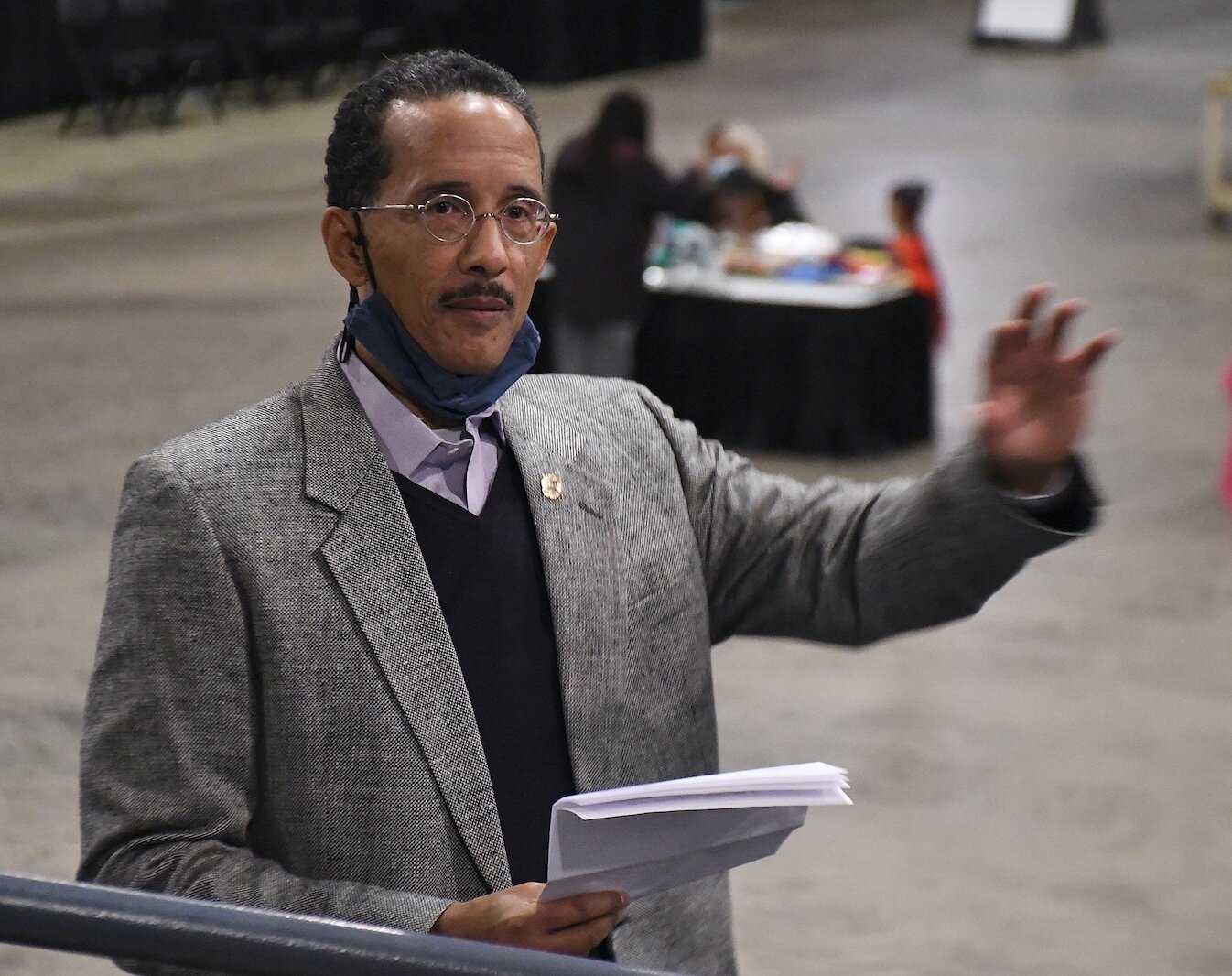
“Dr. King said that the Emancipation Proclamation was a promissory note. He said that promissory note was like a check that America wrote to the Negro and has been returned to the Nego because of insufficient funds. King said, “I refuse to believe that the great vaults of democracy could be empty,” Hill says. “Before he gets to the dream part of his speech, he talks about the broken promises.”
These broken promises have continued and Hill says, “We must continue to demand that America lives up to its promise. We ain’t got to rebuild this thing. We simply have to get to a place where we listen and live up to and honor that promise. As we think about the life of Dr. King who gave his very body as ransom for America and democracy, let us finally commit to listening to each other and the voices of freedom and let us begin by finally truthfully and consistently listening to the life and radical legacy of Dr. King because he wanted people to know that.

